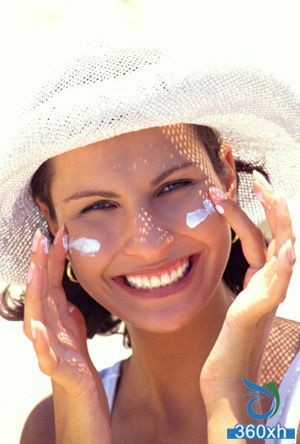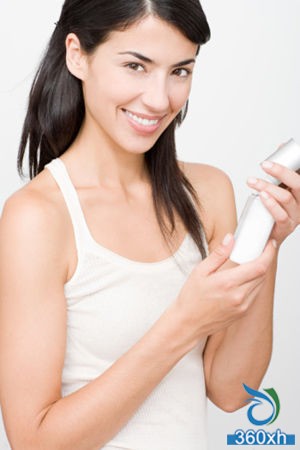The weather is getting warmer and the cosmetics with high sun protection index are especially popular. Dermatologists warn consumers that such cosmetics may not be good for skin health. Recently, the media interviewed in major hospitals learned that many of the patients who went to the dermatology clinic were caused by skin irritation and water seepage caused by allergies.

I used sunscreen, which is bad for my skin.
Consumer question -
I used sunscreen, why is the skin worse?
“Occasionally, after using sunscreen cosmetics once, my skin began to be allergic, and now it is red and itchy...†Ms. Zheng told reporters. The dermatologist said that Ms. Zheng’s situation may have been caused by unqualified sunscreen.
Since the summer, nearly one-third of outpatients with skin diseases have developed symptoms due to improper use of sunscreen cosmetics. Most of them are mainly skin allergic symptoms, while some serious patients have redness and other symptoms on their face. According to experts, many consumers do not understand the use of sunscreen cosmetics, blindly buying and using, which leads to the phenomenon of “spending money and disfiguringâ€.
I used sunscreen, why is it tanned?
Some women report that they usually pay attention to sun protection. The home is equipped with sunscreen with different SPF value (ie sun protection factor). It must be smeared before going out, but it is still unavoidable to be sunburned. In this regard, hospital medical beauty experts pointed out that sunscreen can effectively resist UV protection of the skin from harm, in addition to product quality, whether the correct use is another important prerequisite for its function, and in the patients treated, it can be said 80% of people do not understand the correct use of sunscreen.

Sunscreen Misunderstanding -
Misunderstanding 1: The thicker the sunscreen is, the better.
Many girls like to apply thick sunscreen before going out, thinking that this can escape the pursuit of the sun. But the truth is not.
There are two reasons: First, sunscreen products are made up of chemical substances. Under the action of high temperature and human sweat, the chemicals in them can irritate the skin and even cause skin irritation. Second, too much sunscreen will block pores and sweat glands, which is not conducive to the secretion of sweat and sebaceous glands, and easily induce skin infections and cysts.
Myth 2: The higher the sun protection index, the better, the more expensive the sunscreen is, the better.
When choosing a sunscreen, pay special attention to its sun protection properties, namely the ability to filter and block UV rays (SPF and PA). Sunscreens are generally labeled with SPF and PA indices. Some people think that as long as you buy expensive sunscreen with high sun protection index, you will be foolproof. This is actually a kind of misunderstanding. Because the higher the sun protection index, the more chemical components it contains, the greater the irritation to the skin and the greater the chance of reactions such as allergies. The right way to do this is to choose a sunscreen based on your skin characteristics and sun protection needs. Try it on the inside of your wrist before purchasing sunscreen. If within 10 minutes, the skin appears red, swollen, painful, itchy, etc., indicating that you are allergic to the product, you should switch to other products.
When purchasing sunscreen products, you should first consider what your sunscreen needs are. If you only use it on the way to and from work, choose the sun protection index at around SPF15. For long-term outdoor activities or travel, it is recommended to use SPF20 or so. If you want to swim in the hot sun or go to the beach to swim, you should use SPF30 or sunscreen with waterproof function.
Myth 3: As long as you apply sunscreen, everything will be fine.
Many people think that if they apply sunscreen, they can safely go out and never get sunburned or sunburned. actually not. The most sensible option is to avoid going out during the strongest hours of sunshine. Even if you go out, you should do double protection: apply sunscreen and support parasols.
Sunscreen tips
Apply only sunscreen and remove makeup.
The sunscreen principle of sunscreen is to form a protective film on the skin to refract ultraviolet rays from the skin. Physical sunscreens and sunscreens are also oxidized as the time of sunscreen application increases, and the sunscreen effect is absorbed to a certain extent. It is weak, and it will be gone for a long time. The disadvantage of chemical sunscreens is that if they are used for a long time, it will cause skin dependence, damage to skin cells and skin structure, especially cosmetics containing more lead and mercury, so the first task is to clean them in time. At the same time, when going out in the summer, the face will inevitably absorb a lot of dust, so when you come back from the outside, the first task is to remove makeup and thoroughly wash off the sunscreen on your face.
Ordinary clearing facial cleanser can thoroughly clean chemical or physical sunscreens without the need for cleansing facial cleanser. Within a few minutes after washing the face, as long as the face is not tight, no greasy feeling is the sign that the face is clean. If you feel that your face is too thick, such as blackheads on your nose, you can choose a facial cleanser. Of course, since many sunscreens are more waterproof, it is better to use a professional cleansing oil.
Stainless Steel Rack Trolley,Food Tray Trolley,16 Tiers Food Tray Trolley,Hotel Kitchen Food Fish Trolley
Jiangmen Vanky Stainless Steel Products Co., Ltd. , https://www.vankystar.com